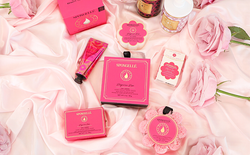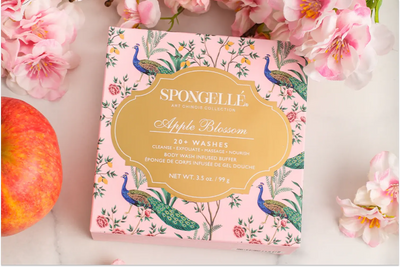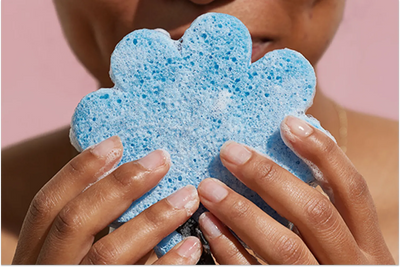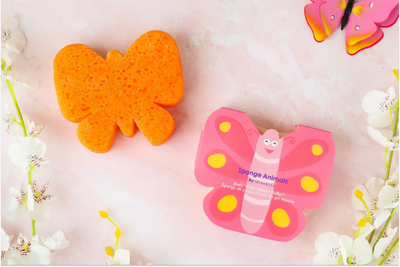Warmer weather means the return of the dreaded mosquitoes. Nothing can ruin a relaxing time outside like being attacked by insects — but spraying chemical-filled bug spray all over your body doesn't sound like a good time, either.
Learning what scents mosquitoes like and don't like can help you stay bite-free. By understanding the science behind mosquito attraction and aversion, you can identify scents that mosquitoes hate and use them to your advantage. You can even make natural mosquito repellent using these scents.
Let’s dive into the smells mosquitoes hate and how to use them to enjoy the great outdoors without the annoyance of bug bites and chemical bug sprays.
What Is the Science Behind Mosquito Attraction?
Mosquitoes are known for their ability to find their prey through scent. They can pick up on carbon dioxide, lactic acid, and other chemicals released by humans and animals from up to 165 feet away. These chemical cues help mosquitoes locate where they can feed.
Once a mosquito has detected a potential host, it begins to track the scent and move toward its source. Mosquitoes can locate where a scent is coming from with remarkable accuracy, even in total darkness. Mosquitoes have specialized organs in their antennae that can detect the smallest amount of chemicals.
Numerous chemical compounds attract mosquitoes to humans. For example, mosquitoes are drawn to the scent of sweat, which contains many different chemicals, such as lactic acid, ammonia, and uric acid. They are also attracted to carbon dioxide, which humans and animals exhale.
Other compounds that attract mosquitoes include octenol, which is found in your breath, sweat, and certain perfumes, soaps, and lotions.
What Scents Do Mosquitoes Hate?
It is possible to throw off a mosquito's ability to locate its prey using scents that mosquitoes hate. These scents can mask the chemical cues that attract mosquitoes or confuse them by overwhelming their olfactory receptors.
Citronella
Mosquitoes hate the scent of citronella. It's a natural oil that is extracted from lemongrass and has been used as a mosquito repellent for many years. Studies have shown it can effectively repel mosquitoes for hours.
Peppermint & Lavender
Peppermint is another natural repellent that mosquitoes hate. It is effective at repelling not just mosquitoes but also ants, spiders, and other insects. Lavender is also a detestable scent to mosquitoes and has the added benefit of being a natural relaxant!
Eucalyptus & Tea Tree Oil
Eucalyptus oil is another scent on the mosquito repellent list. It is made from the leaves of the eucalyptus tree and has a refreshing scent. It is also used as a decongestant. Tea tree oil has a wide range of uses, including as a natural insect repellent.
Cinnamon
Cinnamon is a spice that almost everyone already has on hand. It also happens to repel mosquitoes. Its strong, spicy scent can mask the carbon dioxide you emit, making it difficult for mosquitoes to locate you.
Why Should You Use Traditional Bug Spray?
Chemical bug sprays can effectively repel mosquitoes, but they come with a risk of adverse side effects. The active ingredients in most traditional bug sprays are chemicals known as DEET and pyrethroids. These chemicals can have harmful effects on your health and the environment.
DEET has been linked to a range of negative side effects, such as skin irritation, numbness, and even neurological damage. In rare cases, DEET has been known to cause seizures and other serious health issues. Pregnant women, children, and people with sensitive skin should consider using natural bug repellents.
Pyrethroids, another common ingredient in bug sprays, have also been linked to negative side effects. These chemicals can cause skin irritation, nausea, and respiratory problems. They are also highly toxic to bees and other beneficial insects, making pyrethroids a threat to the environment.
The overuse of chemical bug sprays can have negative effects on other areas of the environment besides bees. These chemicals can accumulate in soil and water and harm beneficial insects, fish, and other wildlife.
Besides possible negative side effects, these traditional big sprays have a very strong, unpleasant odor. Some bug sprays contain artificial fragrances that can be overpowering and irritating, causing headaches.
Bug repellents can also leave a sticky residue on the skin and clothing, making them uncomfortable to wear. Also, keep in mind some bug sprays are not even meant to be sprayed on the skin because of the use of these chemicals. They only should be sprayed on your clothing.
There are a lot of reasons why people may want to avoid traditional bug sprays. The risks associated with these products are significant, from negative health effects to environmental concerns. Many natural alternatives can effectively repel mosquitoes without the negative side effects.
By using natural scents and other methods, you can spend time outside without the annoyance of bug bites and the harmful effects of chemical bug sprays.
How To Use Scents That Mosquitoes Hate
There are many ways to use and incorporate certain scents to keep mosquitoes away. Here are some things you can try instead of using traditional bug sprays.
Essential Oil Diffusers
Try using diffusers to disperse essential oils throughout your home or outdoor space. Add a few drops of your preferred essential oil, like lavender, eucalyptus, or citronella, to the water in your diffuser and turn it on. Defusing the oil will help spread the scent, keeping mosquitoes at bay while creating a relaxing environment.
DIY Mosquito Repellent Spray
You can make your own mosquito repellent by using essential oils and carrier oil. A carrier oil Is something the essential oil can mix with since you don't want to use 100% essential oil. Coconut oil or jojoba oil are both good options for carrier oil.
Mix 10 to 15 drops of essential oil with two tablespoons of carrier oil and apply it to your skin. This mixture will work as a natural and effective way to keep mosquitoes away without harsh chemicals.
Candles and Torches
There are candles and torches made for repelling mosquitoes. Citronella is a popular scent for these products. As previously mentioned, citronella oil creates a scent that masks carbon dioxide and lactic acid.
You can also try using citrus candles to help repel mosquitoes. Spongellé's Morning Bloom Private Reserve Candle uses green citrus scents along with grapefruit and lavender, which are both excellent scents for repelling mosquitoes.
Scented Body Products
Using scented body products, such as lavender lotion or peppermint body wash, can also help to keep mosquitoes away. The scent of these products will mask the scent that draws in mosquitoes. Try showering with the French Lavender body wash-infused buffer.
Finish with the French Lavender body lotion that will nourish your skin while helping ward off mosquitoes.
DIY Mosquito-Repelling Sachets
You can make mosquito-repelling sachets using dried herbs and essential oils. Mix dried herbs, such as lavender and lemon balm, with essential oils and place them in small sachets. Place these sachets around your home or outdoor spaces to help repel mosquitoes.
What Are Other Natural Methods To Repel Mosquitoes?
You can do other things besides using scents that mosquitoes hate to repel them. Here are steps to consider taking:
- Mosquito Netting: Mosquito netting is a simple and effective way to protect yourself from mosquito bites. You can use a mosquito net over your tent or space while you're camping or spending time outdoors.
- Wear Protective Clothing: Wearing long-sleeved shirts and pants can help to protect your skin from mosquitos. In addition, you can wear light-colored clothing because it can make it more difficult for mosquitoes to find you.
- Use a Fan: Mosquitoes are not very strong fliers. Turning a fan on creates a breeze that can help to keep them away. This method is especially effective when used in combination with other mosquito-repelling methods.
- Eliminate Standing Water: This tip is one of the most important. Mosquitoes breed in standing water, so getting rid of any sources of standing water around your home can help to reduce the mosquito population. Make sure your flowerpots, bird baths, and gutters are empty during the warmer months.
- Garlic: Eating garlic can repel mosquitoes because the compounds in garlic are released through the skin when consumed — and luckily, mosquitoes don't find these very appealing.
- Mosquito-Repelling Plants: Certain plants are great at repelling mosquitoes, such as citronella, lavender, and lemon balm. You can plant these around your home or garden to help keep mosquitoes away. Additionally, having potted versions of these plants right by where you're sitting outside can be effective.
Goodbye Mosquitoes
Using scents that mosquitoes hate is a natural and effective way to keep mosquitoes off you. Whether you use essential oils, candles, or body products, incorporating these scents into your daily routine can help you enjoy the outdoors without worrying about mosquitoes.
Spongellé has all the body products and candles you need to repel pesky mosquitoes.
Sources:
Study: Mosquitoes Find You (and Decide to Bite) Because They Can Smell Your Breath | Everyday Health
Citronella Oil Benefits, How to Use, Side Effects and Safety | Healthline
Bug spray poisoning | UF Health, University of Florida Health















